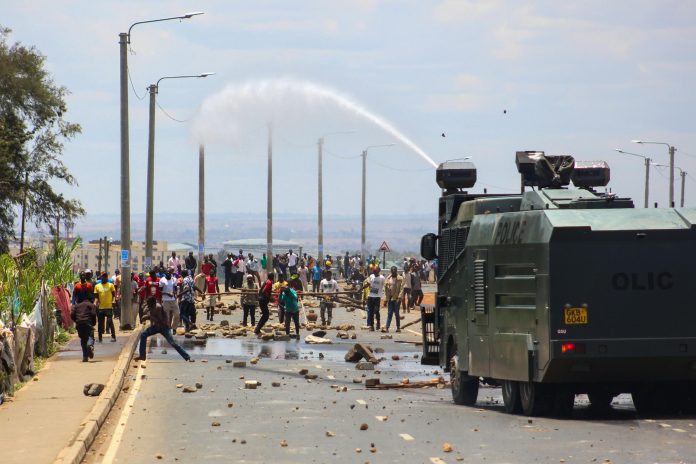Political instability and civil unrest have overtaken economic concerns as the biggest threats to businesses in Kenya, according to a new report by global security firm G4S.
The World Security Report 2025, published by Allied Universal and its international subsidiary G4S, shows that 45% of Kenyan chief security officers (CSOs) rank political instability as their top concern for the year ahead, followed closely by civil unrest at 43%. Both figures sit well above the Sub-Saharan Africa average, underlining growing anxiety among companies still reeling from this year’s Gen Z-led demonstrations.
More than one in five Kenyan firms (21%) expect to be directly affected by protests or demonstrations in 2026 — the highest rate reported anywhere in the region.
“Political and civil unrest can have an immediate and costly impact on businesses and investor confidence,” said Laurence Okelo, Managing Director of G4S Kenya. “Security leaders are responding by strengthening their physical security programmes, investing in new technology, and enhancing workforce safety.”
Faith Mumo: It has never been the same since I lost my business to goons
Economic Worries Ease, But Fraud Persists
Despite the rising political tension, the report notes a degree of optimism on the economic front. Concerns over economic instability have dropped to 41%, down from 52% last year, signaling improved business sentiment as inflation and currency volatility begin to stabilize.
However, fraud remains a leading external threat, cited by 41% of Kenyan firms — a problem the report links to lingering financial pressures.
“Consistent with previous findings, fraud continues to dominate both internal and external risks across Africa,” said Christo Terblanche, Regional President of G4S Africa. “Still, it’s encouraging to see businesses investing in smarter, AI-powered security systems to improve efficiency and resilience.”
Kenyan Firms Boost Security Budgets
The report finds that 79% of Kenyan companies plan to increase their security budgets in 2026, one of the highest rates in Sub-Saharan Africa.
Their main investment priorities include:
- Technology and infrastructure upgrades (83%)
- Comprehensive risk assessments (71%)
- Regulatory compliance (66%)
The growing focus on technology reflects a shift toward smarter, data-driven security solutions, including surveillance analytics, access control, and remote monitoring systems.
Why Kenyan businesses should turn to Co-op Bank for risk protection
Businesses Count the Cost of Unrest
Kenya’s recent Gen Z protests left deep scars on the economy, with sectors such as retail, logistics, and hospitality among the hardest hit. The report reveals that 45% of companies experienced revenue losses due to security incidents, while more Kenyan firms than anywhere else in Sub-Saharan Africa reported rising insurance premiums.
Institutional investors also remain wary. According to the survey, a major security incident could slash a listed company’s valuation by up to 32%, threatening investor confidence and long-term growth.
Global Security Shifts
The World Security Report 2025 captures a broader global picture of rising threats and evolving security priorities:
- 40% of CSOs report an increase in violence or threats toward company executives.
- 78% say their organizations have been targeted by misinformation or disinformation campaigns.
- 64% cite radicalization or misinformation as the main cause of insider threats.
- 81% believe frontline security officers face greater demands than they did five years ago.
There is also a shift in how companies view their security teams. 71% of security leaders now say people skills — such as communication and empathy — are more valuable in security personnel than physical strength.
Preparedness Over Panic
Analysts say the findings highlight a clear message: as Kenya edges closer to the 2027 general elections, companies must strengthen preparedness and resilience rather than retreat.
“The political cycle and social pressures are reshaping Kenya’s risk landscape,” noted Okelo. “Businesses that invest in proactive risk management and modern security infrastructure will be best placed to navigate uncertainty.”
With political unrest now topping the national risk agenda, Kenyan businesses appear to be entering 2026 with cautious optimism — bracing for volatility but armed with stronger security strategies and smarter tools.









